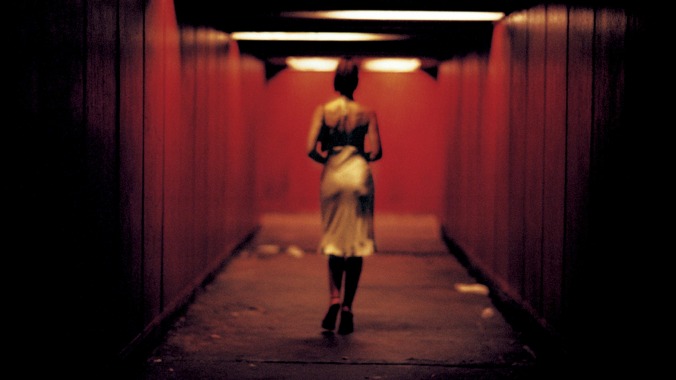Irreversible: Straight Cut review: New version of notorious French drama remains a difficult watch
Gaspar Noé's re-edit of his graphic, controversial 2002 film still has much to say about toxic masculinity

Gaspar Noé’s 2002 French language drama Irreversible is one of those films that routinely appears on lists of “The Best Movies You Never Want To See Again,” as well as many critics’ personal all-time worsts. Regardless of where you stand, it’s not an easy sit—even Noé’s biggest defenders will concede he likes to provoke with deliberate ugliness. (Irreversible contains not just a 9-minute rape scene, but characters displaying racism, homophobia, transphobia, and pedophilic tendencies.) Like Memento, the original film plays its scenes, most of which appear as single-takes, in reverse order. The action begins with a maelstrom of violence in a subterranean sex club. As the story continues backward, we learn that the violence is payback for a brutal rape and assault that happened earlier; going even further back, we experience the life of a loving couple before all the violence took place. In the newly re-edited and restored Irreversible: Straight Cut, the story is now told in chronological order, which mainly reveals that all men are awful. At least in this story.
It seems unlikely that any viewer would come to either cut of Irreversible without knowing that it infamously centers on a brutal rape. So whichever direction one watches it in, the shadow of the act hangs over everything, delivering a stomach-churning inevitability en route to the reveal. In reverse order, we first see the violence that the rape provokes, then we wonder how these aggressive men got that way, then we learn about their motivation, and then we feel sad upon seeing how good things were before it all happened. But once the timeline goes linear, that all proves to be relative.
Originally, the idyllic scenes with Alex (Monica Bellucci) and Marcus (Vincent Cassel) played after the rape. In the recut, the story starts with them, so a different picture emerges, beginning with Marcus playfully ignoring Alex’s many requests to stop doing things she finds annoying, like stealing money from her to buy booze for a party. She doesn’t indicate that it bothers her—she comes across as fairly expert in handling insecure male egos—but for this new version of the story, it’s now the beginning of a slippery slope.








































